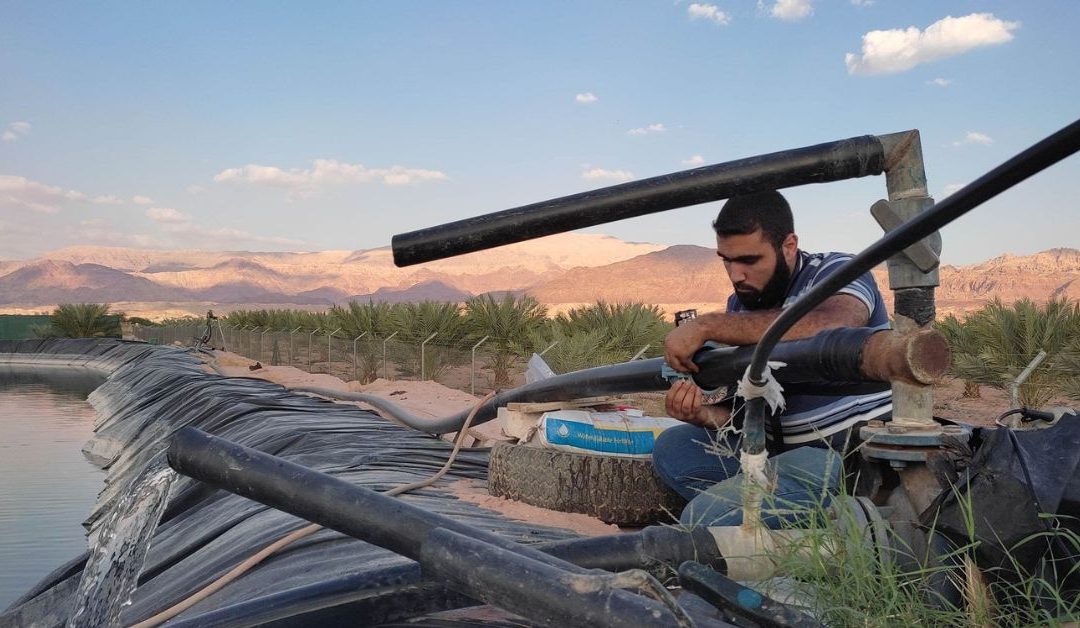What is social innovation?
BuildPalestine is a global community for social innovation in Palestine. Although the term social innovation (ابتكار مجتمعي) might sound foreign to some, we actually practice it every day.
Simply put, social innovation is about solving a challenge that the local community faces in a better way. The way we define ‘better’ is as more effective or less costly.
These challenges can be related to education, health, agriculture, the environment, culture, etc.
And the context of the local community matters a lot. For a village that doesn’t have a local health clinic, introducing telemedicine could be a form of social innovation.
Similarly, some things that may not be seen as social innovation in other parts of the world, are critical elements here in Palestine.
One example of this is in the arts and culture space. Given efforts to ethnically cleanse the Palestinian people, we see any initiative that better preserves Palestinian history and culture as falling under the category of social innovation.
At BuildPalestine, we call people who think of innovative and sustainable ways to solve social and environmental challenges social entrepreneurs (رياديين مجتمعيين). They create a business that is financially sustainable and have the ambition to scale its impact.
Why is social innovation important for Palestine?
Palestinian society is characterized by a strong sense of community and collaboration.
When Israeli checkpoints pop up in the West Bank, taxi drivers work together in real time to communicate the latest closings. Before 3G was available, people would call each other to find out the latest developments of a route.
In other places around the world, some variation of Google Maps would do the job, but given that Google Maps doesn’t recognize Palestine, and Waze includes racist warnings when approaching Palestinian areas, we needed another solution.
That’s where Doroob Navigator comes in, which is led by Mohammed Abdel Haleem. By crowdsourcing road closures, Doroob helps drivers avoid Israeli road closures. Today, the Doroob app has over 100K downloads.
Wherever there are challenges, social innovation is needed. And Palestine is a place rich with challenges. Our government’s resources (and priorities) to tackle these problems are limited, hence, it is up to the people to uplift the lives of their communities.
What are examples of social innovations in Palestine?
Each year, BuildPalestine supports a cohort of social entrepreneurs through our fellowship program. Our fellows are solving challenges in the environmental, health, education and culture sectors.
Here are some examples:
Rawan Rajab is eliminating the negative environmental impact of glass waste in Palestine by upcycling glass into environmental interior stones and plant pots. Learn more about Blue Stone here.
Hamzeh Ghosheh is reducing the number of deaths on the road by designing an app that evaluates driving techniques in the form of credit that gives the driver a better understanding of their practices, and rewards safety. Learn more about Naviatx here.
Baker Bozeyeh is reducing the amount of water lost in inefficient water networks in farms and cities by a smart water management system that detects leakages. Learn more about Flowless here.
Hanadi Sufyan is eliminating food waste in Gaza by innovating a hybrid solar heat pump food dryer. Learn more about Solar Food here.
Salah El Sadi is reducing nitrate levels in agricultural water by creating an environmentally friendly, chemical-free water purification filter. Learn more about Blue Filter here.
To see the full list of social enterprises that graduated from the BuildPalestine fellowship, click here.
How do you become a social innovator?
If you have an idea for a solution that solves a social challenge in a more effective or more cost effective way, then you may be ready to become a social innovator.
Here are four simple steps for how to get started:
Tell everyone about the idea, and research all existing solutions. If your idea is more effective (delivers better results) and more efficient (less cost), then you have social innovation.
Create a minimum viable solution (or simplest possible solution) for your idea and share it with your target beneficiaries. Ask for feedback to adjust your solution.
Identify revenue streams that will allow this to be sustainable. Your customer (the one who pays $$) might be the beneficiary, and it might be another party.
Launch and listen for feedback. Your solution can always be improved. Keep iterating your solution and business model until you accomplish impact and profit (we call it surplus!), which you should put back into your business to scale your project and reach more people.
A place rich with challenges is ripe and ready for social innovation. As a community, we have an important role to play in empowering and uplifting Palestinian changemakers.
Changemakers who are empowered by their societies are the true actors, and we need more of them.
Are you ready to join the movement to create a brighter future in Palestine through social innovation?
Join our newsletter to stay informed about all the ways you can be a part of social innovation in Palestine.

